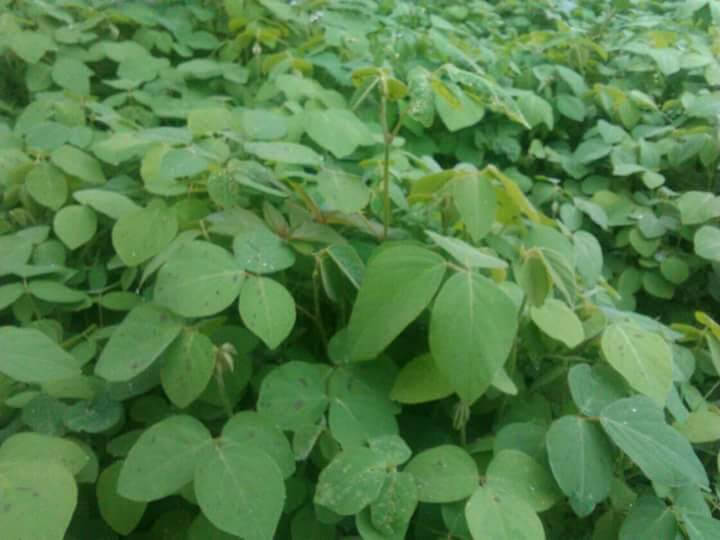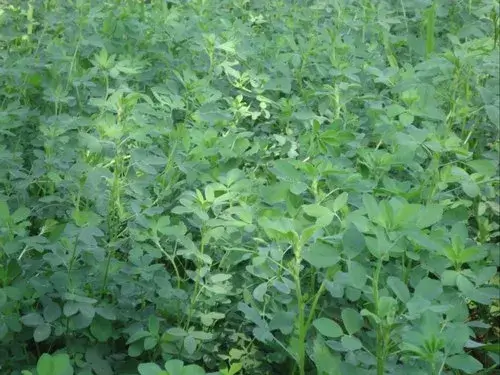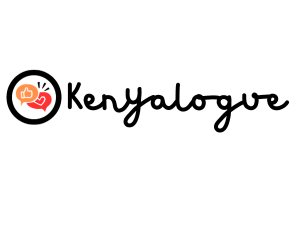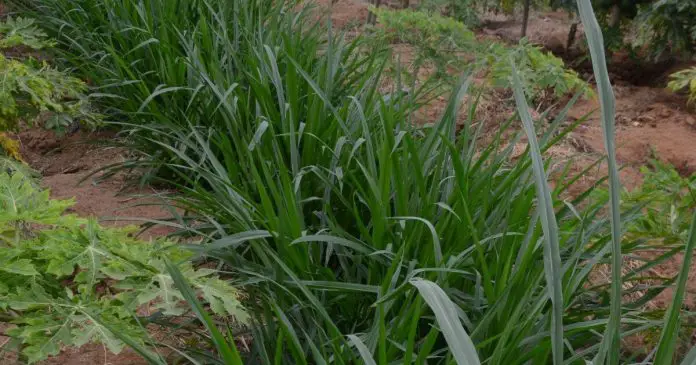Napier grass is a hardy plant that thrives in tropical regions and is commonly called Uganda or elephant grass.
It is a member of the Poaceae family and is recognized for its capacity to flourish in poor-quality soil.
Nevertheless, additional feed is required to supplement the nutrients in Napier grass to ensure that livestock remains healthy and productive.
In this post, I will investigate two promising supplements for Napier grass: Desmodium and Lucerne.
Desmodium

Desmodium is a legume that farmers use to give dairy cattle more protein and save money.
It has many varieties, but the most popular ones are greenleaf and silverleaf.
Farmers can also grow it with napier grass and maize to control stemborer and weeds like striga using something called the ‘push and pull’ technology.
Desmodium helps with soil erosion and can also add nitrogen to the soil, making it more fertile.
This can increase crop production while reducing the need for nitrogen fertilizers.
Nutritional value of Desmodium
Desmodium is a nutritionally valuable plant for livestock because it has high levels of crude protein, minerals, and vitamins.
Silverleaf desmodium has 15.1% crude protein, 8.5 g of calcium per kilogram of dry matter, 2.2 g of phosphorus per kilogram of dry matter, and 7.4 MJ of metabolizable energy per kilogram of dry matter.
On the other hand, greenleaf has 15.5% crude protein, 10.2 g of calcium per kilogram of dry matter, 3.1 g of phosphorus per kilogram of dry matter, and 8.4 MJ of metabolizable energy per kilogram of dry matter.
Benefits of Desmodium as a supplement for Napier grass
Desmodium helps crops grow better in two ways.
First, it stops striga weeds from harming the crops.
Secondly, it improves the soil by fixing nitrogen and doing other things.
The plant’s vines keep the soil from getting too dry and stop it from washing away.
Desmodium also gives the soil more organic matter.
Potential drawbacks of using Desmodium
There are some downsides to growing this plant.
The seeds are small and expensive, and you need special bacteria to help it grow.
Excessive rain (more than 1500 mm per year) can damage the plant by attracting pests and diseases.
It doesn’t like dry areas, so you may need to give it extra water if you live in a place with low rainfall.
It can’t grow in soil that is too alkaline, either.
Lucerne

Lucerne, also known as alfalfa, is a type of perennial legume widely grown as a forage crop for livestock.
Its deep root system allows it to access nutrients and water deep in the soil, making it well-suited to dry or drought-prone areas.
It is known for its high protein content and good digestibility, which makes it an excellent supplement for Napier grass.
Nutritional value of Lucerne
Lucerne is a plant that produces a high-quality green feed easily digestible by animals.
It has high energy with 65-72% digestibility and 8-11 megajoules of metabolizable energy per kilogram of dry matter.
It is also high in protein, containing 12-24%.
Benefits of Lucerne as a supplement for Napier grass
Lucerne has several benefits as a supplement for Napier grass.
It has beta-carotene, which is good for fertility.
It can substitute for hay and grass in dry conditions and complements maize and grass silage.
Lucerne is a legume, so it fixes nitrogen, which makes it cheaper to grow because it doesn’t require fertilizer.
It would suit all herds and can be harvested multiple times a year, making it a convenient and cost-effective supplement for Napier grass.
Potential drawbacks of using Lucerne
One potential drawback of using Lucerne as a supplement for Napier grass is that in certain regions, the plant may have a short-term persistence due to its susceptibility to diseases.
It also doesn’t like too much water, and you need to rotate the areas where you plant it.
Lucerne grass can also cause a problem in cattle, where their stomachs can fill up with gas and cause health issues.
The Verdict
Both Desmodium and Lucerne are promising supplements for Napier grass.
Desmodium has the potential to improve soil quality, prevent weeds, and fix nitrogen, while Lucerne is known for its high protein content and good digestibility.
By weighing the pros and cons of each option, farmers can make an informed decision that will ultimately help them maximize the health and productivity of their livestock while minimizing costs.



